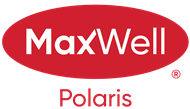What Do You Need To Purchase A Home in Alberta?
When thinking of purchasing a home in Alberta, it's more than just picking up a property you like, signing a few documents and moving in. The process involves careful planning, saving and making calculated decisions. Here is a comprehensive step-by-step guide that outlines all the necessities you will need when buying a home in Alberta.
1. Down Payment:
The first crucial item that you need to afford is the down payment. The amount varies based on the purchase price of the home. If the cost of your dream home is less than $500,000, you're required to make a minimum down payment of 5%. For homes priced between $500,000 and $1 million, the down payment is 5% for the first $500,000 and 10% for any amount exceeding $500,000. And if you're eyeing a house that costs $1 million or more, the loan may not meet the mortgage insurance company's standards. In this case, you might have to make a minimum down payment of 20% or more.
2. Mortgage Pre-Approval:
Before beginning your house hunting journey, it's recommended to get pre-approved for a mortgage. A mortgage pre-approval gives you an estimate of how much you can borrow from the lender and at what interest rate. This will help narrow down your search to homes within your budget and save you time and disappointment in case you find out later that you can't afford a particular property. Additionally, having a pre-approval will make the process smoother when you're ready to make an offer on a home.
3. Using a Mortgage Broker:
A mortgage broker acts as an intermediary between you and potential lenders. They have access to a broad range of mortgage products from various lenders, including banks, credit unions, and private lenders. By understanding your financial situation and goals, a mortgage broker can help you find a mortgage that suits your needs, often securing better terms and rates than you might obtain by approaching lenders directly. Additionally, mortgage brokers manage much of the paperwork and negotiation processes, making the home-buying experience smoother and less stressful.
4. Employment and Income Stability:
Lenders will also look at your employment history and current income to determine your eligibility for a mortgage. They want to see that you have a stable job and consistent income to ensure that you can make the monthly mortgage payments. If you've recently changed jobs or are self-employed, you might face some challenges in getting approved for a mortgage. However, a mortgage broker can work with lenders who specialize in these types of situations and help you find a solution that fits your unique circumstances.
5. Credit Score:
Your credit score is another crucial factor that lenders consider when determining your eligibility for a mortgage. A credit score is a numerical representation of your creditworthiness, and it's based on your past borrowing behavior. Lenders use this to assess the risk of lending you money and to determine the interest rate they'll offer you. It's crucial to maintain a good credit score by making timely payments, keeping your credit card balances low, and avoiding new debts before applying for a mortgage.
6. Debt-to-Income Ratio:
Your debt-to-income ratio (DTI) is the percentage of your monthly income that goes towards paying off debts, including credit card bills, car loans, and student loans. Lenders typically prefer a DTI below 43%, but this may vary depending on the lender and the type of loan. It's essential to have a low DTI to increase your chances of getting approved for a mortgage.
7. Mortgage Loan Insurance:
In instances where your down payment is less than 20% of the home's price, mortgage loan insurance comes into play. This insurance is crucial as it protects lenders should you be unable to make your mortgage payments. The premiums for mortgage loan insurance range from 0.6% to 4.5% of the mortgage amount, depending on various factors. The larger your down payment, the less you pay in mortgage loan insurance premiums.
8. Total Cost of Mortgage:
Knowing how your down payment impacts the total cost of your mortgage is crucial. The total mortgage cost includes the principal amount and interest charges, which can be substantially reduced by saving for a larger down payment. So, saving more for your down payment can help you save thousands of dollars down the line.
9. Home Buying Programs and Incentives:
Finally, it's worth exploring different programs and incentives designed for home buyers. Alberta has various programs you ought to familiarize yourself with before hitting the market. These could potentially save you significant amounts of money or make the home buying process smoother.
Purchasing a home in Alberta involves more than just financial readiness. It's about knowledge and preparation. Understanding your down payment, the role of mortgage loan insurance, the impact of your down payment on total mortgage cost, and the benefits of home buying programs are critical steps to success. Be ready, and the keys to your new home in Alberta will be in your hands before you know it.
Happy house hunting!
Posted by Admin . on

Leave A Comment